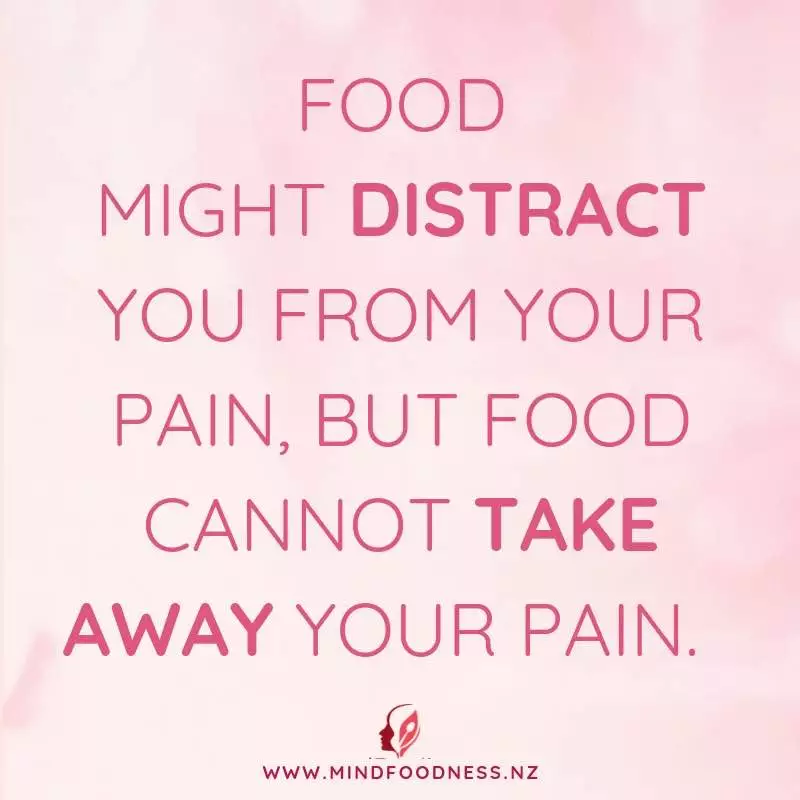This intense feeling of needing food, even when you know you have had enough to eat, but you just can’t seem to feel satisfied. In those moments we try to eat more or a variety of food, but no matter how much or what you eat, it just doesn’t seem to hit the spot – this or similar is what people describe as food cravings. Most say it happens in the evening or at the weekend.
Often, these food cravings are described as an indication for lack of nutrients in our body. For example, when we crave chocolate, we might be craving magnesium, if we crave chips, we might actually be craving sodium, etc. However, what I see in my praxis when treating people with “food addiction”, binge eating or emotional eating is that food becomes an emotional crutch, a lover, a friend and a substance that is there for us when we want to feel better, when we want to forget our problems for a moment or just need a distraction from what is truly hurting us.
The reason we eat when we are not hungry is that we want to change how we feel
I think, most of us were given a lolly when we were upset when growing up. We have learned that it will soothe our emotions and give us comfort. We have been conditioned to seek comfort in food. Think about the last time you felt tired, what did you crave? Pizza, pie, a piece of cake, chips….? Usually, it will be something calorie dense with a high amount of sugar, fat and/or salt.
Food also gives us something else to focus on instead of what truly bothers us. It is a distraction from uncomfortable emotions and feelings. Food is there for us when nobody else is, it doesn’t reject us, it doesn’t say anything hurtful back. It is there for us in bad and good times – it becomes everything for us.
And when food becomes everything to us, when it becomes the only pleasure in life, then it starts meeting a much bigger need than just nourishment. In these moments, food cravings are cravings for love, connection, comfort, entertainment or even healing.

When food becomes everything
Women often tell me that food becomes something they look forward to their entire day. After a stressful and long day, when kids have gone to bed, it is their “zone out” time. It is the “only” time they feel comforted and relaxed.
And of course, there is the actual response in our brain when we eat food with a high amount of sugar, fat, and salt. This food stimulates the reward systems in the brain which releases the feel-good hormones endorphins, dopamine and serotonin. No, wonder we feel “hooked” and addicted.

Focusing on eliminating binge eating – why it doesn’t work
So, when we tell a person who doesn’t have much pleasure in life to now stop eating food they crave, we are basically asking them to eliminate the only pleasure that is left in their life. As humans, we always seek pleasure and avoid pain. So, naturally, when asking a person to stop doing something that provides them pleasure, without giving a substitute, they will rebel. Their entire system will rebel.
What to do when managing food cravings?
We need to work with human psychology and change what our brain associates with food. We can’t change our brain response to certain foods, but we can learn to crave what would really satisfy our needs and desires. For that to happen, we need to change what meaning we give to food cravings. Food cravings are not a problem, they are a solution. As soon as we see food cravings as a messenger, we stop judging them and can be more curious to find a solution.
Where to start?
- Give yourself permission to look beneath the surface and be honest with yourself – even, or especially when it feels scary.
- Identify what food means to you and what needs you are trying to meet with it.
- What does your heart long for? What are you avoiding to address?
- If food is the only pleasure in your life, focus on adding variety, fun, and comfort in other ways. It can be exploring new hobbies, connecting with people, joining groups with likeminded people.
- Journal to connect with yourself and your desires.
- Establish mindfulness practice to create a deeper awareness of what is bothering you so that you can address the root cause of your relationship with food. In THIS blog post, I am shareing three videos how to manage emotions with mindfulness and not fod.
- Get help and support. We all have blind spots and might often not be able to understand what we really need without someone else’s perspective.
If you require more support to identify why you crave food and what you can do about it, either book your free Food Freedom Breakthrough Call with me today HERE or register for FREE Video Training HERE to get control over food cravings and stop feeling addicted to food.




